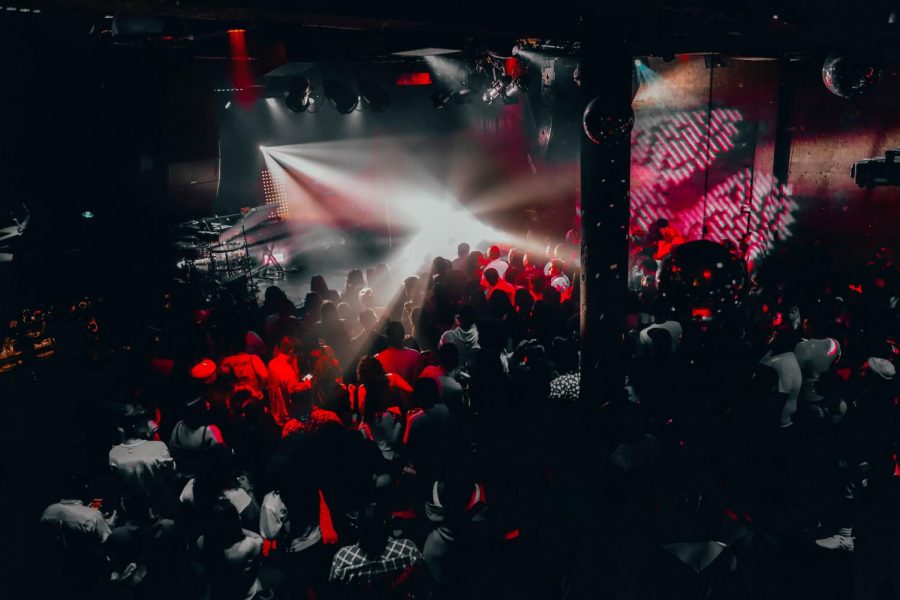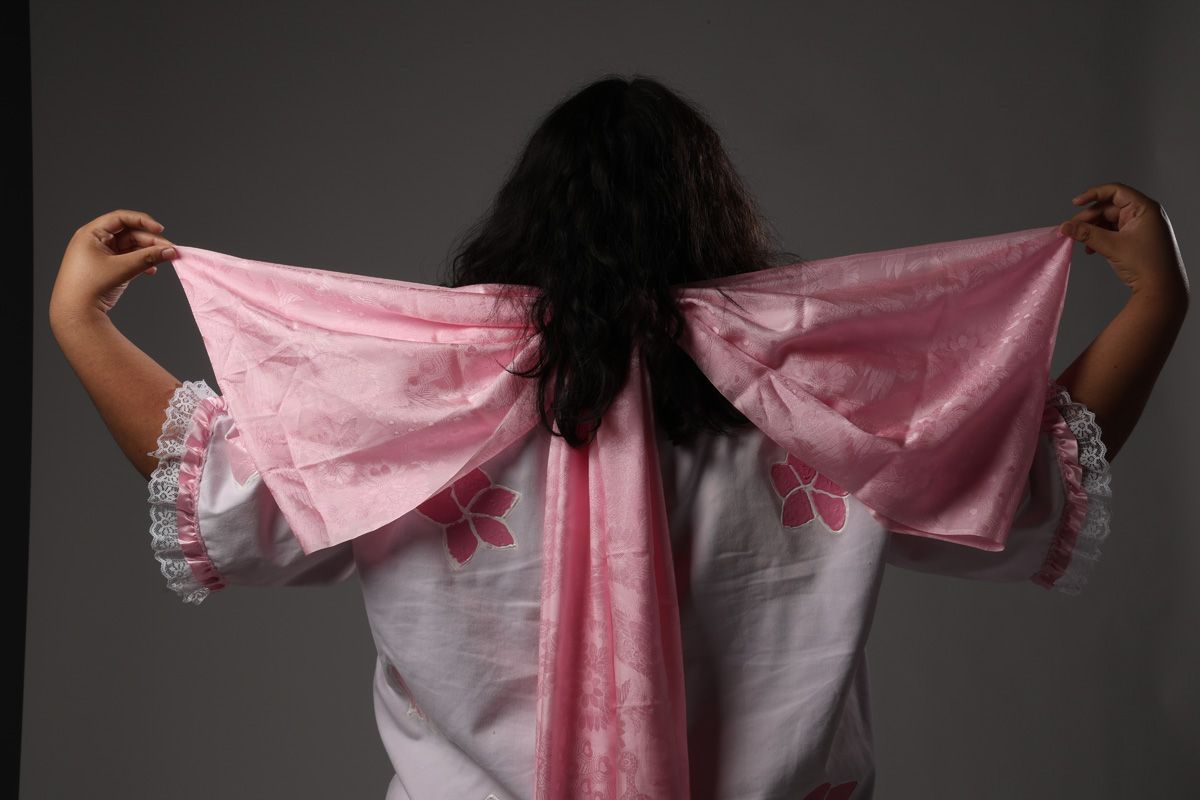Here for the music, not harassment
May 11, 2020
With ticket and ID in hand, I anxiously stood with my feet apart while a security guard patted me down right outside the main entrance. An industry standard, this protocol has become second nature to a concert junkie like myself. Once inside the venue, I took my place at the barricade and watched people trickle in by the bar and near the stage. A buzz of anticipation swept through the crowd as the background music eventually cut out and the lights dimmed. As the band ripped into their first song of the night onstage, the crowd began to dance and holler song lyrics in unison.
This is where I belong. Or so I thought.
Even if only for one night, concerts can foster a deep sense of community among music fans. But within the past year, this euphoric environment that I love has become my own nightmare. Instead of singing along with everyone else and enjoying the show, I now find myself apprehensive about who might invade my personal space yet again.
Personal space is practically non-existent at any given concert, especially when mosh pits are involved. Crowds become rowdier and people often push each other in an attempt to slam dance or get closer to the stage. This rambunctious atmosphere is not unusual to many concertgoers, including myself, but a line is drawn when others are then subjected to unwanted harassment of any kind within this specific environment.
In recent months, I have experienced several instances of sexual harassment at different concerts on a pretty consistent basis. Whether at a large-scale music festival like Warped Tour or at a more intimate, smaller venue, it seems like I can never escape this nuisance. To some, I’m just another ass to grab or body to grope.
Unfortunately sexual harassment can happen to anyone at a concert, regardless of age or gender. In 2017, a sexual assault awareness campaign organization in Chicago — Our Music My Body — conducted an online survey over a two-week period asking concertgoers about music festival harassment within the United States. Of the 509 responses, 379 were from women, 84 were from men and 57 were from non-binary people. From all the respondents who were surveyed, 47% had experienced unsolicited comments about their body or appearance, 45% faced aggressive flirtation and 41% were groped.
At a glance, though these statistics only reflect a small portion of the U.S. music festival culture, sexual harassment at concerts should not be ignored.
“[Music] festivals are one of the biggest breeding grounds for harassment to take place,” said music fan Mechelle Rowell. Within the last few years, Rowell, 31, has both witnessed and experienced harassment first-hand in different concert settings. From her perspective, incidents of sexual harassment are easier for security guards to miss at many outdoor music festivals due to the larger crowds that these events typically attract. At the metal-oriented Knotfest, which draws over 40,000 fans each year, Rowell has watched police officers assist with crowd containment to prevent certain situations from escalating further.
From what Rowell has seen, if a more serious situation like sexual assault occurs in such a public space, many music festivals are usually not equipped with proper on-site emergency rape crisis tents. At best, a first-aid tent stocked with limited supplies like bandages, sunscreen and ibuprofen can be found on festival grounds.
To address the rampant issue of sexual harassment within its own community, the Coachella Valley Music and Arts Festival organizers implemented an anti-harassment and anti-assault policy in 2019. As the Coachella website states, to help promote a safe and more inclusive festival environment, the Every One policy is a strict code of conduct against any form of sexual harassment, “be it verbal or physical…any discriminatory act including homophobia, racism, transphobia, ableism, xenophobia, or sexism.” Those found in violation of this policy will be thrown out of the festival.
As part of the Every One policy, a trained community care team is available to help Coachella concertgoers in distress, including those who have experienced harassment and assault. Still, a recent report from the Desert Sun — a Southern California newspaper — found that 1 in 6 women were sexually harassed at both Coachella and Stagecoach music festivals last summer.
When security guards and new festival policies seem like insufficient safety nets, how else can concertgoers combat sexual harassment?
“Before the show, scope out a staff member that you can trust who will listen to your concerns, should some issue arise,” said security guard Janice Suess. “If you’re going with other people, check in with each other and make sure that everyone leaves together or knows when someone is departing.”
Suess, 27, who is a full-time college student, has been working security at The Independent in San Francisco for almost two years. In that time, she has seen all kinds of harassment take place. Generally, from her experience, most altercations happen when an individual becomes inebriated. As a team, Suess and her colleagues are vigilant about deescalating any potential situation to ensure that patrons are safe and having a good time.
When an altercation occurs — whether physical or verbal — in such a stimulated environment, remaining calm and assertive, while compassionate, can be a tough balancing act for both concertgoers and security guards. It takes practice to master, but these are important tactics to remember when assessing any potential situation at a concert. As a security guard, Suess has learned to approach patrons with respect instead of aggression to quickly diffuse any risky circumstance.
Collectively, The Independent staff makes every effort to be visible and accessible in all areas of the venue. Should patrons have questions or need assistance, especially when being harassed by someone else, Suess encourages concertgoers to seek out a staff member for help.
No single music venue is exactly the same and when security guards are inaccessible, the next best possible safeguard against harassment often falls upon concertgoers themselves. “But this is not a foolproof or acceptable standard to which inclusion should be held,” Suess said.
While this alternative cannot always guarantee a person’s safety, there are usually a handful of concertgoers in any crowd who are willing to help others when necessary. One such music fan, Livia Zuniga, found herself in a similar situation at the Aftershock festival last year. During Korn’s performance, Zuniga sprained her wrist while protecting her friend from crowd surfers that flung themselves toward the stage.
“I try to make sure everyone around me is having a good time and I try to help anyone I can before myself, which is sometimes my downfall,” Zuniga said.
As an avid concertgoer, Zuniga has cultivated a support system for herself and other music fans at every concert she attends to help minimize harassment.
“I’m there to see the band and support them. [Harassers] can say all they want, but it’s just words at the end of the day,” Zuniga said. “Now, if they physically put their hands on me, that’s completely different.”
When subjected to harassment at a concert, if all else fails, try to find a safer space if possible. This could mean standing by the merch table or finding a designated concert buddy who shares a similar taste in music. After all, concerts are a cause for musical celebration, not an open invitation to violate someone’s space without their permission.




